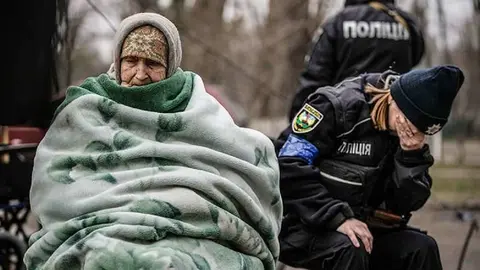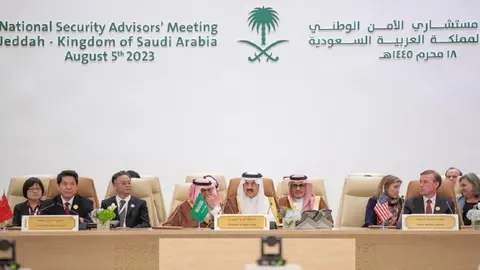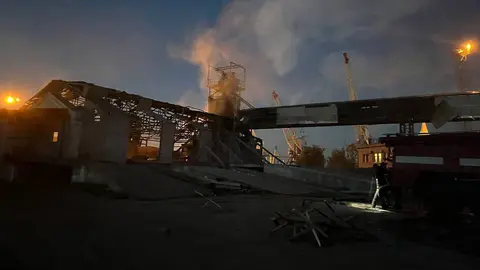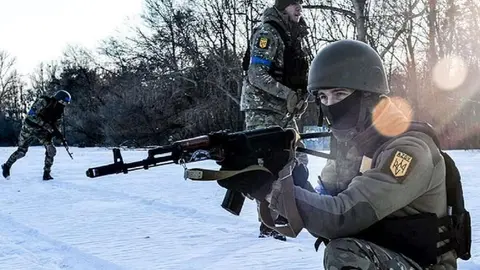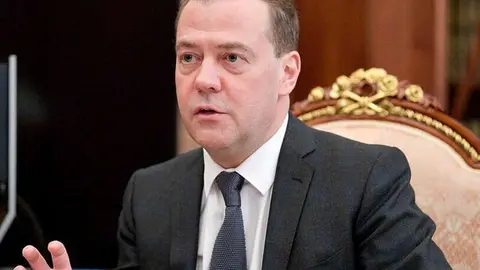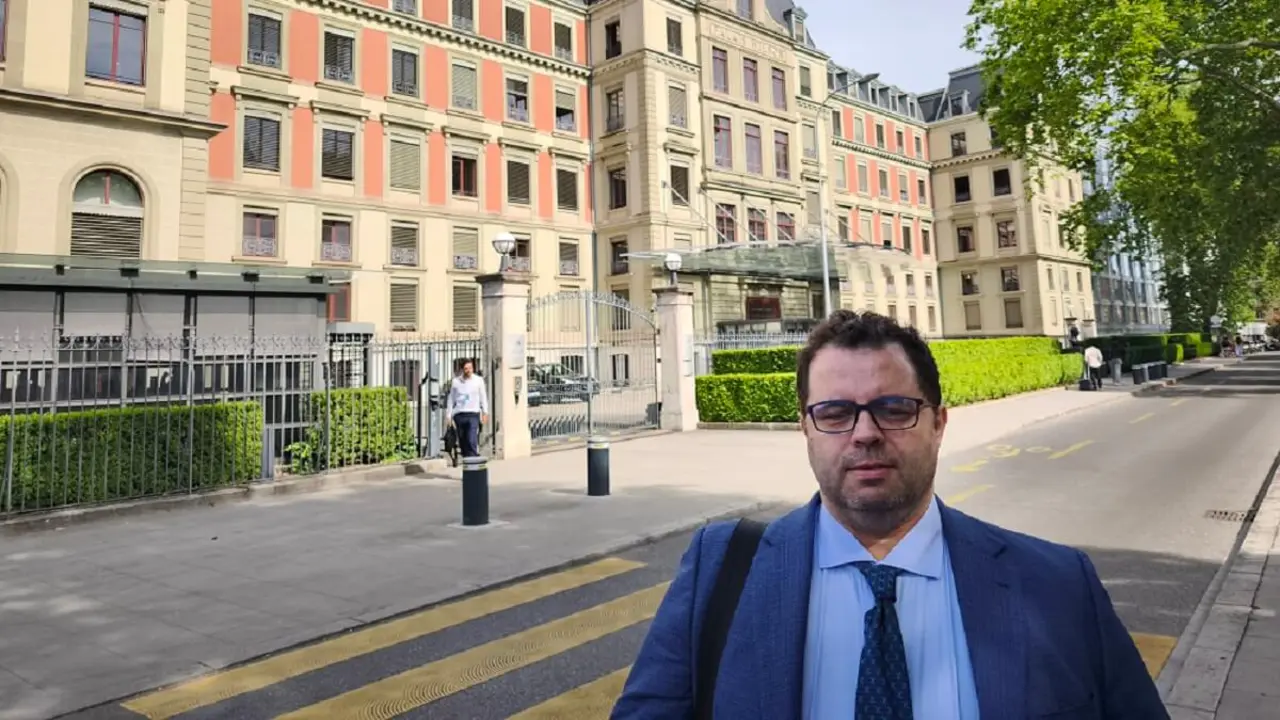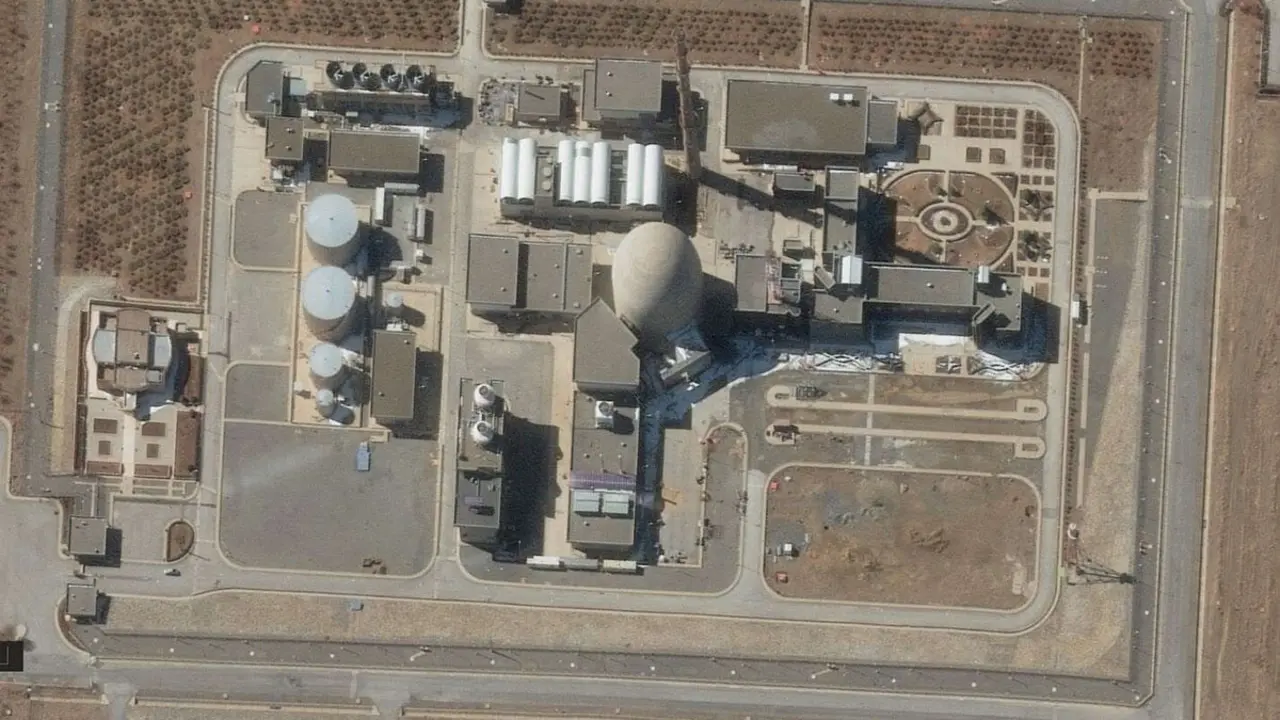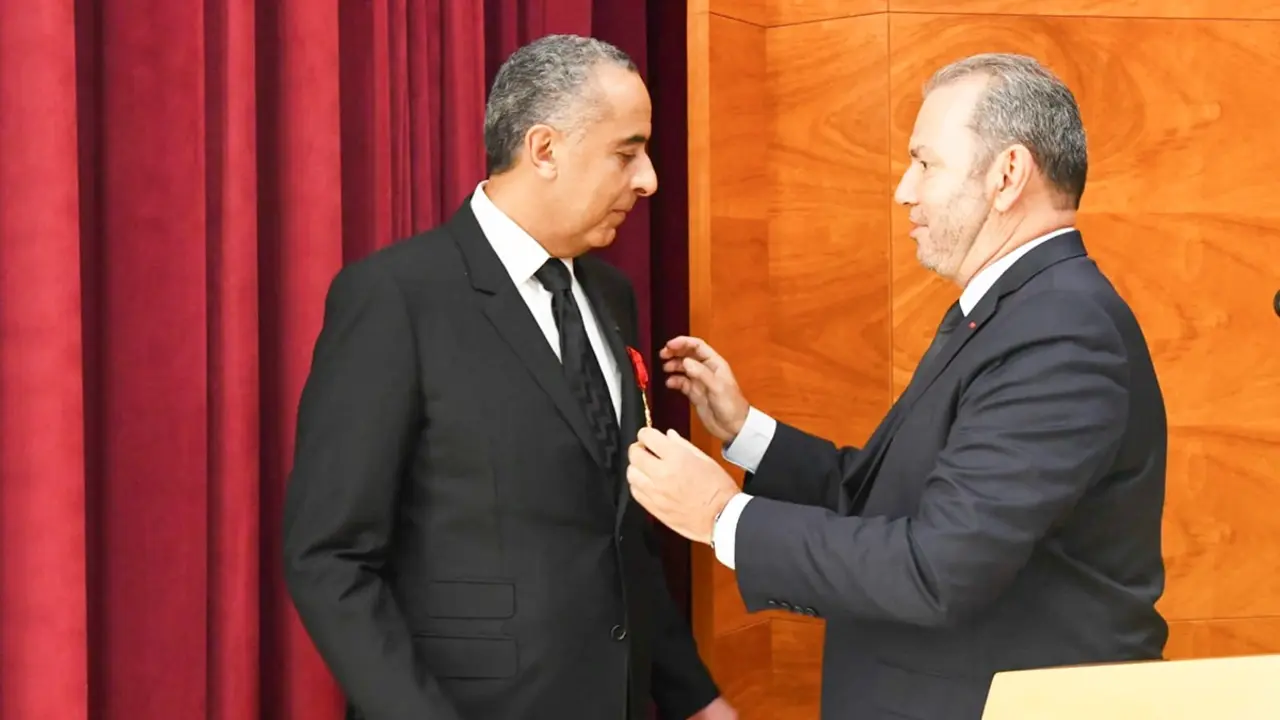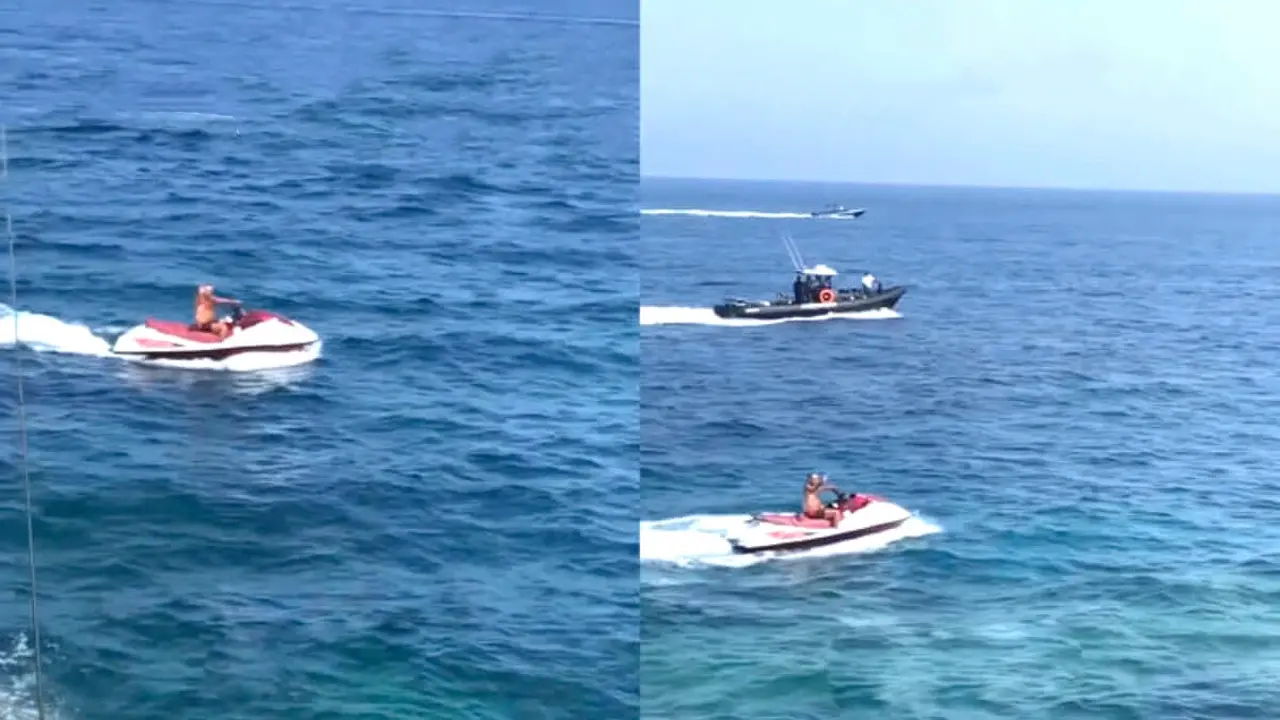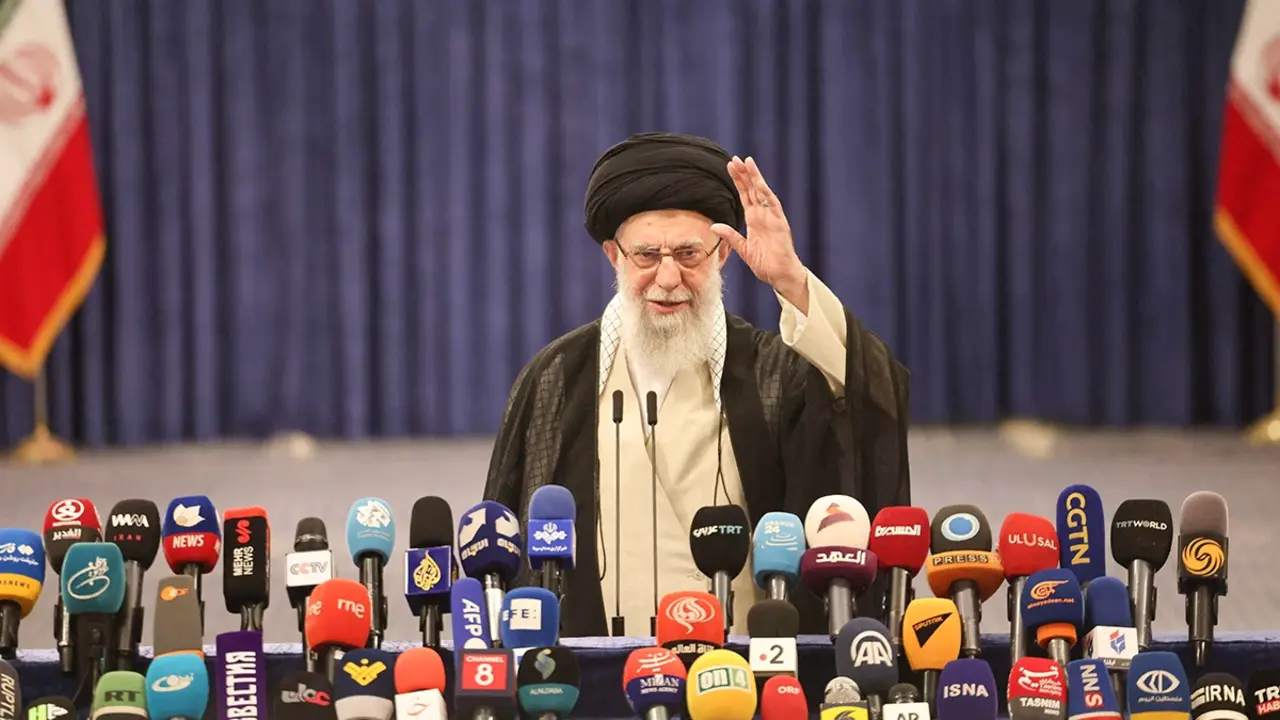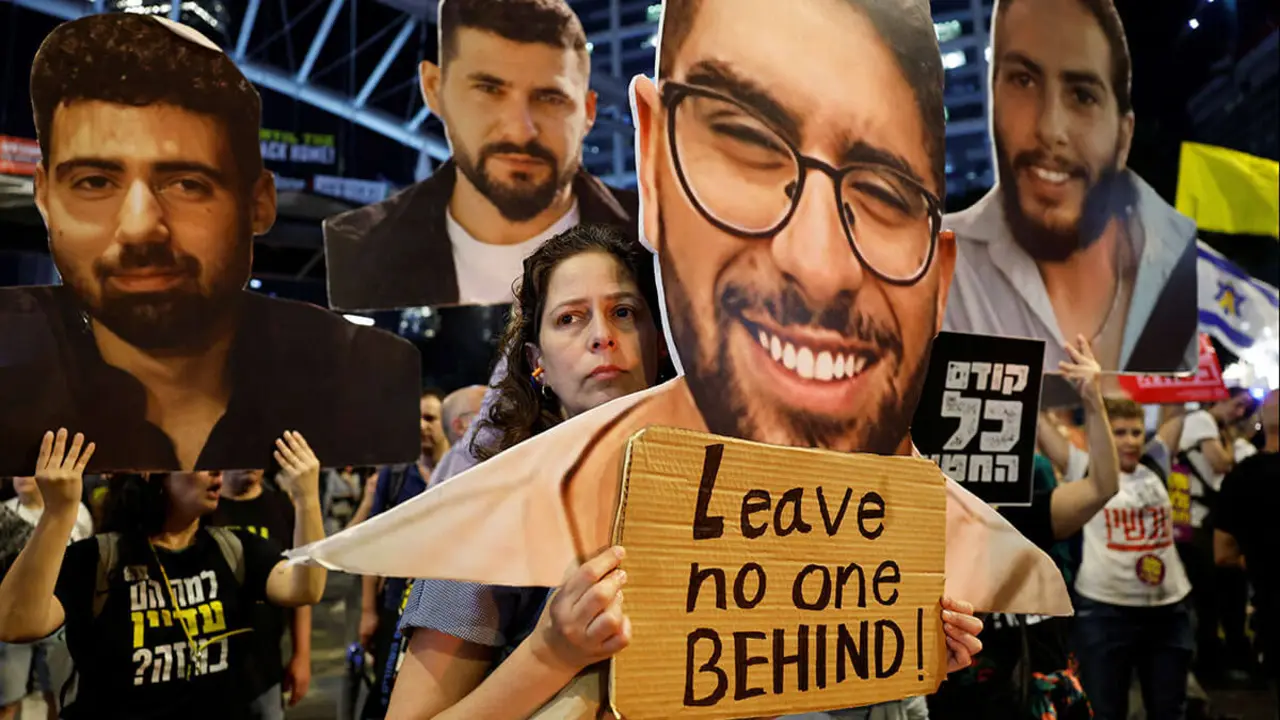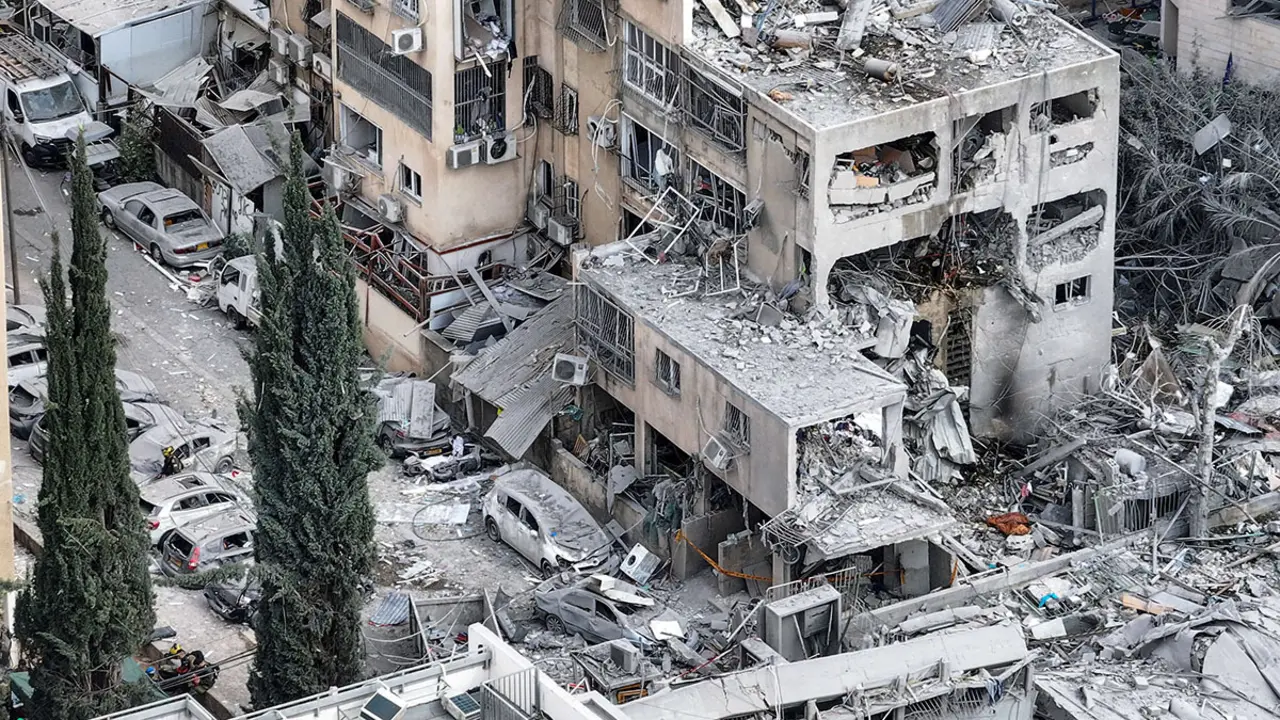The war in Ukraine is a real war against free press by the Kremlin

The Russian invasion of Ukraine continues after 17 months and the situation remains entrenched. Russia is unable to advance and even the Ukrainian counter-offensive is arriving, albeit at a somewhat slow pace in its early stages.
The journalist and correspondent in the Ukrainian country María Senovilla returned to the programme "De cara al mundo" on Onda Madrid to explain the new details of the war and to denounce the brutality of Russian President Vladimir Putin's regime.
María, you have just been in a position on the front line in Klishchiivka, in Bakhmut, where some people perhaps have information that is a bit different, that the counteroffensive has begun or has not begun. What did you find in that front line artillery position?
I had the opportunity to share with them that this is strange, a full day, from morning to night, waiting for those radio warnings to put the GRAD-type multiple rocket launchers that were operating in that position to work.
Then I also had the opportunity to talk to the captain who commands the entire GRAD section, which from about 10-12 kilometres around Klishchiivka provides cover for the Ukrainian infantry that is now pressing on that point of the front line.
Talking to the commander, he was telling me that right now the counteroffensive is going slowly, this is no surprise, we're not giving any news, no exclusives, it's going extremely slowly, but they're maintaining that pressure especially towards the front, towards the southern flank of Bajmut, because they're still, this is incredible, but they're still trying to recapture that town.
And talking to him, he was telling me that they are also prepared for when - and he used these words - the real counteroffensive starts. Imagine the look on my face. I told him that the counteroffensive started two months ago, that it's been two months now and you can clearly see the difference when you're on the ground, when you're in the front line positions, that before May all the units were in defensive mode and now they're the ones carrying the weight of the offensive.
So this commander explained to me that, yes, the counteroffensive had begun in some places, but they were still waiting for the arrival of weapons, of heavy weapons that had yet to come from the West, and a large-scale counteroffensive had yet to be organised.
That's what they were telling me on the front line in Bakhmut, that they are preparing for when the counteroffensive really starts. We don't know if this, as the commander was telling me, is going by zones, is going by different fronts or if they are recalculating the strategy, because as the weeks of the counteroffensive go by, which could also be the case and is a very intelligent thing to do, if they see that something isn't working, they stop, they pull back and plan the next step better.

And when you come back from Klishchiivka, you find that for the whole week Moscow has been pounding Ukrainian cities. It is responding to drone attacks by the Ukrainians by pounding civilian targets. A new method, what is called double bombing to hunt down those who rescue the victims of the first bombing.
A method that began in the Balkan war three decades ago, but which was then brought into fashion by ISIS, the Islamic State, the jihadist terrorists, who used to put a car bomb usually in places with a large civilian population, such as a market, and when people went to help them, some suicide bombers usually blew themselves up with the explosive charge attached to their bodies, killing those who went to help and save lives.
And that is the new strategy the Kremlin has adopted. Two new bombings of hotels and restaurants frequented by the international press, NGO workers and volunteers delivering humanitarian aid have taken place so far this week. One was in Pokrovsk, in Donetsk province, very close to where I am, and the other in the city of Zaporiyia.
And, moreover, let's remember that they take place a month after the attack on the RIA pizzeria in Kramatorsk, and I say attack because this type of bombing directed against places where you know that the international press, the United Nations, volunteers are present, are barbaric attacks, they are not a legitimate objective in a war, for me they are terrorist attacks. On that occasion, at the end of June, the Kremlin killed 13 civilians, including several minors and also a well-known Ukrainian writer and poet who, since the large-scale invasion began, had been documenting war crimes and, precisely in a war crime, lost her life at the end of June.
As for this week's attacks, the one in Pokrovsk was the most serious, with nine dead and more than 80 wounded. It was a two-phase bombardment, a first missile was launched, they waited 20 minutes and when all the rescuers, firemen, police and ordinary citizens, who saw the explosion and ran towards the building to help the victims out of the rubble, were already gathered there, a second missile was launched. The aerial images seen from the drones that filmed journalists and police who were there are terrifying.
An entire city block was practically reduced to rubble. 80 people were injured, including 29 policemen, a dozen rescuers and several minors. In that building where the first missile was launched, there was a hotel frequented by journalists and just below, on the floor below, another pizzeria, like the RIA, where also the international press used to meet with press officers, with volunteers and with more expatriates who are here working in this war.
And two days after Pokrovsk, this same Wednesday, the deed was repeated. Russia bombed another hotel in the city of Zaporiyia, also another journalists' hotel, and on this occasion it was also where United Nations workers were staying when they were working in the city, who, by the way, have already issued a statement denouncing the seriousness of the events. This time there have been two dead and nine wounded, and it has also been a declaration of war by Russia against the international journalists who are covering this armed conflict. For me this is a real war against the free press on the part of the Kremlin and on the part of Russia.

Now what is happening is that they are attacking directly because they see, within the international narrative, that what you journalists who have been there for so long are telling is not at all positive for their interests. And they use tactics like you mentioned. With us, for example, in Sarajevo, the snipers didn't shoot to kill when people were in the streets, they shot to wound that person and when other people went to help, as you said. Now what is happening is that instead of snipers hunting people who are going to help a wounded person, now the Russians are doing it with missiles. But, Maria, the Ukrainian response of attacking ports is causing damage and I think that Moscow's reaction is often because it is suffering more than it thought it would.
I also believe that Moscow has miscalculated the repercussions this war would have in the press. Look, this very week also marked the 15th anniversary of the war that Russia carried out in Georgia, the five-day war, after which Russia has de facto occupied two autonomous provinces in that country, in Georgia, where it has military bases, where it has de facto controlled those two provinces for the last 15 years.
And it is also true that that war was very short, but it had very little media coverage and very little reaction from the West and the rest of the international community. I think that with Ukraine they thought it was going to be exactly the same and they didn't expect that 17 months later this war would still be in the newspapers, still occupying, albeit little, space on the television news, on radio programmes.
Moreover, all the information coming in 17 months after the large-scale invasion began points the finger at the Kremlin, documenting, reporting, detailing the war crimes being committed here, especially in the occupied territories to which we unfortunately have no access, but every time we receive information they talk about torture chambers, they talk about mistreatment, they talk about prisons for Ukrainians who are arrested in the street for the mere fact of speaking Ukrainian, in short, about barbarities that are being committed without the international press being able to be there to watch and report on them. But, even so, the news is getting out and all the news that continues to come from Ukraine 17 months later is putting the Kremlin more and more on the ropes because they are detailing what is being done here.

Maria, and already even some tycoon or oligarch like Arkady Volozh, co-founder of the search engine Yandex, has publicly condemned an invasion that he described as barbaric, so little by little there are some voices emerging even though they're not going to be able to go near an open window.
Yes, or maybe they're slipping on a banana peel in the street, a lot of things can happen, but let's also remember that in June Prighozin himself, before he rose up in rebellion, said that this war was nonsense and recounted some of the things that had happened in Bakhmut.
When voices from inside Russia are contrasted, confirming what we international journalists on this side of Ukraine are reporting, the situation becomes more difficult to sustain. Even so, the Kremlin has been working on the propaganda story for ten years, it has been investing in propaganda to whitewash this type of action for ten years and there are countries and leaders who, no matter how much we in the press tell them what is happening and show them with images, we are not going to convince them.

